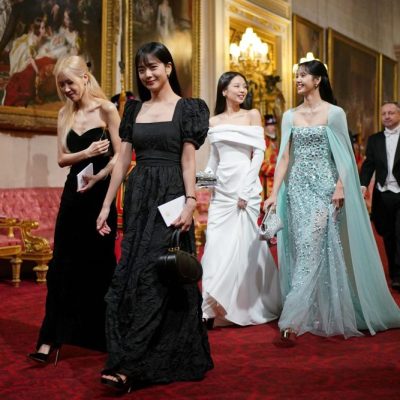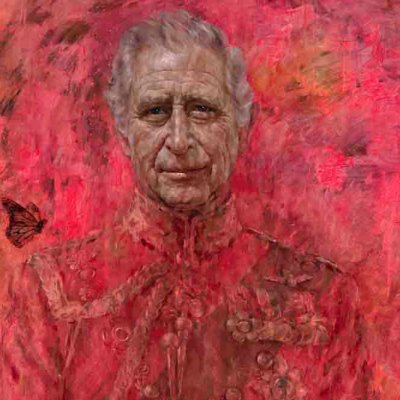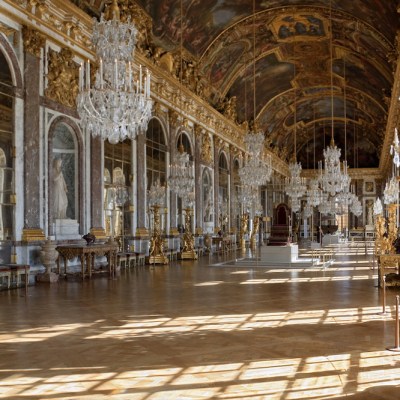Rakewell, Apollo’s wandering eye on the art world, takes a rakish look at art and museum stories.
This week, President Macron’s government received a stern slap on the wrist from the French audit authority. The reason? An overly lavish approach to hospitality. In September last year, a state banquet for the British monarch at Versailles cost a grand total of €474,851 – sacré bleu. The dinner was attended by 150 guests including King Charles III, Queen Camilla and rock royalty in the form of Mick Jagger. The report breaks down the bill: €166,193 on catering, €42,515 for drinks, €14,806 for the arts de la table, and so on. (The state dinner for the president of Mongolia was a snip in comparison: €67,230 all in.) The banquet took place in the Hall of Mirrors, beneath paintings by Charles le Brun that depict the highlights of Louis XIV’s reign: perhaps the perfect dinner venue for a politician who has often been compared to the Sun King.
Of course, high-level diplomacy does not come cheap. The menu was a masterclass of tact, right down to the equitable cheese course: for the French comté, there was the English stichelton. Let them eat cake – and lobster, crab, chicken marinaded in champagne and a gratin of ceps.
Arguably, when it comes to feasting on a grand scale, it was ever thus. In 1520, Henry VIII met François I near Calais for an 18-day gathering so magnificent it became known as the Field of the Cloth of Gold, after the luxurious tents that formed a temporary town. English food supplies included 98,000 eggs, more than 2,000 sheep, 13 swans and three porpoises. Attendees drank nearly 200,000 litres of wine, some of which flowed in a fountain.
The Field of the Cloth of Gold (c. 1545), artist unknown. Royal Collection Trust. Photo by: Photo: 12/Universal Images Group/Getty Images
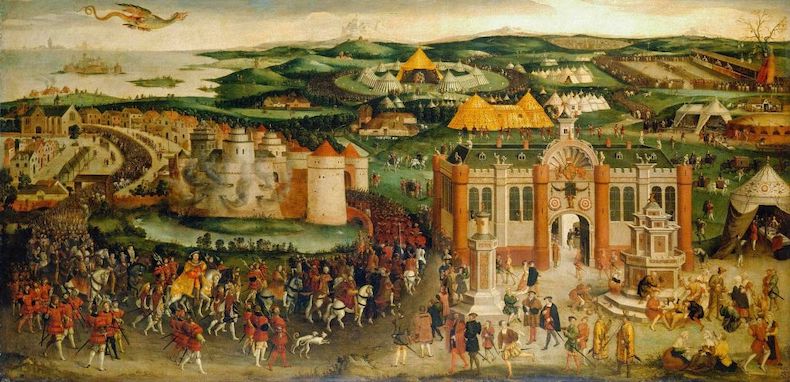
When it comes to wowing heads of state in the UK, the Grand Service deserves pride of place: a 4,000-piece dinner set of gilt silver designed to impress generations of monarchs and politicians. Commissioned by George IV (then the Prince of Wales) for the equivalent of £5.5 million, since its first outing in 1811 it has been laid out for everyone from Charles de Gaulle to Xi Jinping. Given his taste for bling – let us not forget the gold-covered apartment in Trump Tower, the only sort of gilt he will admit to – Rakewell assumes Donald Trump felt very much at home.
A table at Buckingham Palace laid with the Grand Service, ready for a state banquet. Photo: POOL/Tim Graham Picture Library/Getty Images
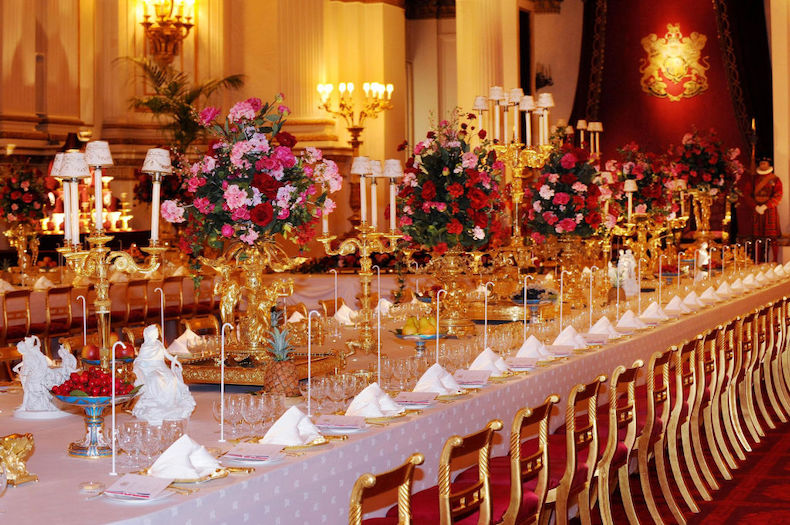
With the news that Macron’s wining and dining has left presidential accounts €8.3m in the red, Rakewell reflects that there is perhaps nothing new under the soleil. He refers his readers to James Gillray’s Monstrous Craws at a New Coalition Feast (1787), in which the Prince of Wales gobbles up guineas in an image representing both gluttony and extravagance. At cost-per-use over the course of two centuries, though, George’s Grand Service has surely by now paid its way.
Monstrous Craws at a New Coalition Feast (1787), James Gillray. Metropolitan Museum of Art, New York

Got a story for Rakewell? Get in touch at rakewell@apollomag.com or via @Rakewelltweets.


